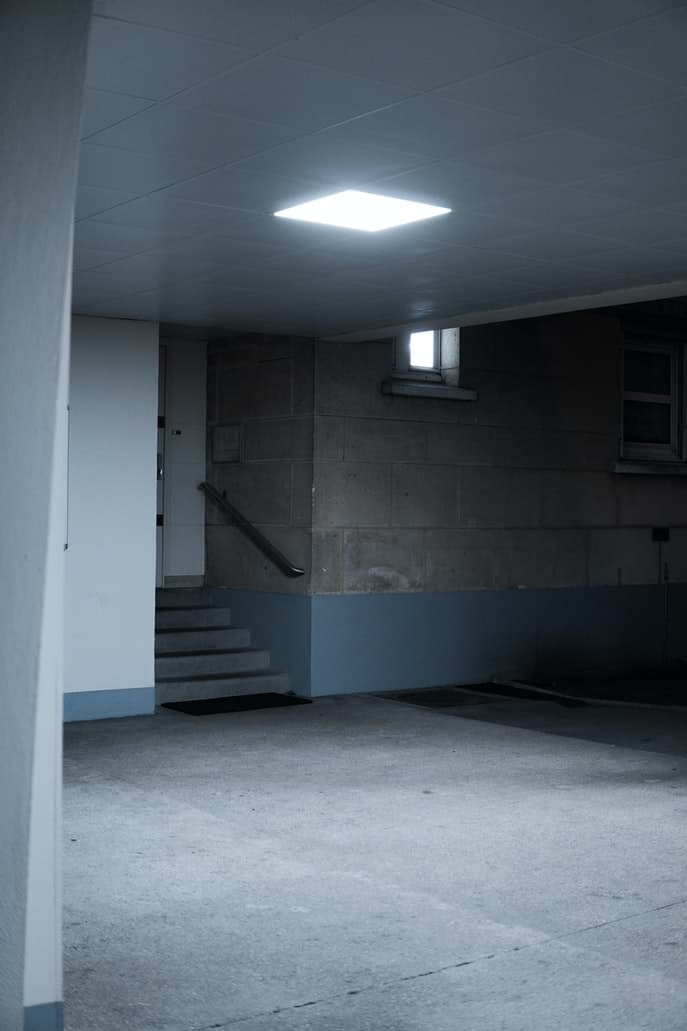
Ask anyone, and they will all tell you that their main focus when it comes to waterproofing their homes would usually lie on their interiors. Of course, no one wants their furniture and appliances to get soaked in water during storms. However, one thing that they often fail to tend to is their foundations.
The foundations of our homes are as important as the sections of the house. Make the crucial mistake of not maintaining them, and you may lose more than your belongings. A weak foundation has the tendency to crumble and compromise the safety of our household. If you do not check and tend to its small cracks, you are just putting your family in danger.
Forget about earthquakes and other major calamities; a weak foundation can do as much damage as it can from the inside of your house, or at least whatever will be left of it.
In such a case, one way of maintaining your foundation’s strength would be by ensuring that it doesn’t get wet. Luckily, the main indicator of a wet foundation can be seen in your basement. If it isn’t waterproofed, you will immediately see the signs.
If you want to learn the guaranteed ways of waterproofing your home’s foundations, look no further than the tips we have listed below.
There may come a time when you need to renovate your home. While the process normally requires a simple offset of wall removals and hammering, there are also instances when you may need to excavate or dig. Of course, you will also need to hire contractors when things get a bit out of hand; nonetheless, the renovation will be accomplished, and you may achieve a refurbished indoor look.
Now, while things may look bright and sunny from that point onwards, you may encounter a sudden leak in your basement. This is usually caused by recent excavations; wherein, the soil was not refilled well enough to stop rainwater from seething in. If you want to prevent that at all costs, make sure that your contractors were able to replace and refill the excavated ground.
Due to extreme weather conditions, your outdoor soil may end up getting uneven over time. In such a case, you would need to flatten your ground and even refill those parts where the floor was easily uprooted and blown off by hurricanes. This may not seem much of a problem at first until you realize that uneven grounds usually simulate the shape of a wide cup or bowl, accumulating water and moisture.
If you would ignore these stalled puddles, it may seethe through the ground and into your foundation, further weakening it in the process.
Downspouts are the external pipes connecting your gutters to the ground. The water will travel through the gutters, through the spout, and into the ground during rainy seasons, preventing any flood or puddle from accumulating in your front yard. While things may seem normal after this, you must inspect the direction where the downspout is pointing to.
If the water is being grounded towards your foundations, feel free to readjust the pipes so that they will not be compromised.
Waterproofing your foundations may not be that simple; however, you may still be able to manage it by knowing the different tips and tricks we have listed above. Refilling the excavated areas, flattening your outdoor surfaces, and redirecting your downspouts may lengthen your foundation’s lifespan in the long run.
Remember, our home’s foundations must always be well-maintained; otherwise, we may end up risking our own household in the process.
If you are looking for experienced waterproofing contractors in Belleville, look no further than our experts here at Sir Williams Drainage & Waterproofing Solutions. We provide residential and commercial property owners with high-quality landscaping and grounds maintenance services across the Metro Detroit area and all of Southeastern Michigan. Contact us today and let us handle all your waterproofing needs.

Have you ever experienced having a leaking basement for a time last winter? If you still have no idea why it happened, it’s time for you to know the possible reasons so you can do something about them.
After all, you wouldn’t want to spend the holidays mopping up water in your basement again and experiencing inconveniences that may disrupt your holiday plans. So, keep reading to find out why your basement might leak in the winter.
As you know, your basement will not get the same temperature as outside. It’s typically warmer in that area, so there’s a tendency that the frozen soil and snow will melt. There’s a more thorough explanation for this. Your basement radiates heat because the ground outside your home is cold, frozen, and covered in snow, while the temperature inside your basement is warm and toasty.
Since that is the case, the radiant heat entering the ground will cause frozen soil and snow to melt, creating and accumulating moisture. That moisture is the culprit behind your basement leaks. It builds up and is trapped between your basement walls and floors during winter, which is why you’re experiencing a leaky basement.
If this is your first time hearing about the term, hydrostatic pressure is just the fancy term for the downward pull of gravity. That downward pull of gravity is also one of the culprits why your basement leaks.
In connection with the trapped moisture we mentioned earlier, it’s the hydrostatic pressure that pushes down on the trapped moisture between your basement walls and floors. As the pressure builds, it can force the moisture through existing cracks and holes in your foundation and can even create new cracks. So, you’re experiencing a leaky basement in the winter probably because of hydrostatic pressure.
Improperly designed and maintained eaves, troughs, and downspouts are enough reasons why you’re experiencing leaks in your basement during winter. As you know, these elements are essential to keep leaks at bay. They are there because they will reroute water away from your home. If they don’t adequately serve their purpose, then there’s a higher chance that you will suffer leaks in your basement and flood in your property. As much as possible, ensure that these elements are correctly installed and maintained so that you can prevent having a leaky basement.
Your basement has leaks probably because you have the wrong type of soil surrounding your basement. Having the right kind of soil and irrigation is essential because they help the water drain properly and pull moisture away from your home. If you use the wrong type of soil, moisture will only pool and become trapped against your basement wall. So, make sure that you only use the correct soil type to prevent any leaks and flooding from happening.
Now that you know the reasons why your basement leaks in the winter, you can now do some preventative maintenance and upgrades to prevent it from happening. Let’s make the holidays as fun and as smooth as possible. Get your basement out of your worries so that you can truly enjoy this season!
Sir Williams Drainage and Waterproofing Solutions can be your waterproofing contractor in Belleville! Our highly skilled and experienced team can waterproof any leaky basement with quality and efficiency on all of our processes. Contact us today and get a free estimate!